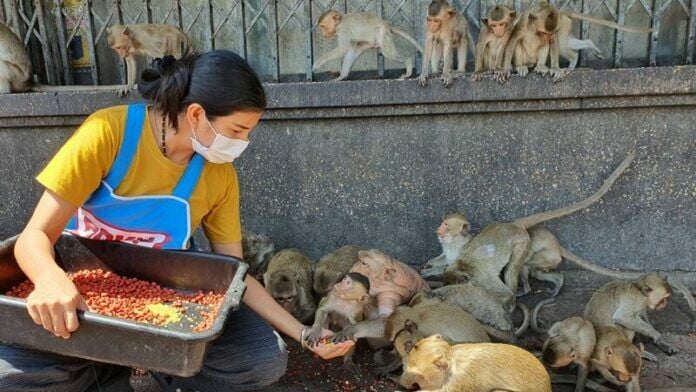Thailand’s monkeys are starving due to fear of monkeypox

Monkeys in Lopburi, central Thailand, are starving because tourists have stopped feeding them in fear of the “monkeypox epidemic,” despite no cases being recorded so far in the kingdom.
The atmosphere of Lopburi city, famous for its monkey population, has been significantly disrupted since the monkeypox epidemic began, despite the epidemic being centred in Europe, the USA and Australia.
Usually, hundreds of people visit the San Phra Kan Shrine in Lopburi every day, which is densely populated with monkeys. A merchant who sells monkey food outside the shrine said that today, May 26, a total of 30 people visited the shrine. Not one person bought food for the monkeys, who are beginning to starve due to the lack of tourists at the shrine.
The merchant said that he and his wife have been trading at the shrine since they were children, and have never had any problems caused by monkeys. He said that business had just begun to return to normal after a two year struggle due to the Covid-19 pandemic. Now, the news of the monkeypox epidemic has devastated business once more…
“We’ve heard about monkeypox, but we’re not worried. All the monkeys are clean here, they are so familiar to me I know them by face, we recognise each other. I would like to request that the relevant authorities help to reduce fear mongering of monkeypox among the Thai population and tourists. I am scared that from now on, there will be no more tourists visiting the area, we will have a lack of income to feed our families and the monkeys will starve as well.”
Local shop owner and monkey-lover Suthip Tantiwong said he has been caring for Lopburi’s monkeys for a very long time. He said that the monkeypox epidemic has dampened Lopburi’s atmosphere dramatically, despite not a single case being reported in Thailand.
SOURCE: KhaoSod
Latest Thailand News
Follow The Thaiger on Google News:


























